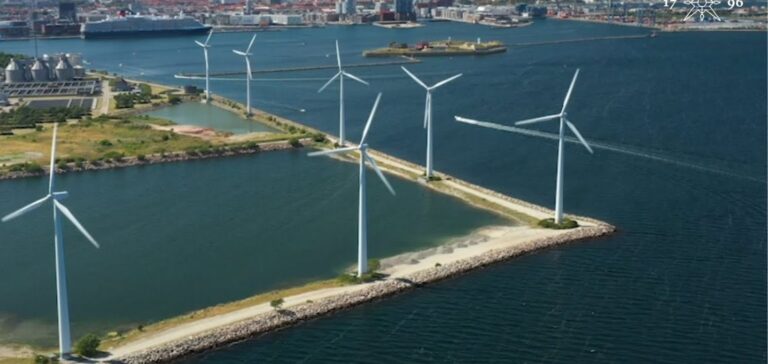Google has taken another significant step toward its 24/7 zero carbon energy goal by signing a power purchase agreement with Ørsted.
Helena Wind Farm: Google’s new energy source in Texas
As part of the agreement, Google will purchase 150 MW of renewable energy generated by the Helena Wind Farm for the next 15 years. This is the first agreement between Google and Ørsted in the United States and the second in the world.
The Helena Wind Farm, located in Bee County, Texas, was commissioned in mid-2022. It provides low-cost electricity to the South ERCOT service territory, enough to power approximately 90,000 homes. The project will contribute to Google’ s commitment to operate all of its data centers, cloud regions and offices with zero carbon energy 24/7 by 2030.
Sana Ouji, energy manager at Google, explains that “building a 24/7 zero-carbon energy portfolio requires mixing different resources to optimize hourly production, and that’s exactly what this project helps us achieve.” She adds, “We are excited to continue our partnership with Ørsted and add this wind project to our existing solar portfolio in ERCOT as we serve our customers from our Dallas cloud region.”
The Google-Ørsted partnership: an important step towards a green and sustainable economy
Google was the first company to set a 24/7 zero carbon energy goal. Many other organizations have since adopted similar commitments. The partnership with Ørsted will help Google achieve its zero carbon goal, while supporting local job creation and generating tax revenue for the community.
Monica Testa, head of origination at Ørsted Americas, says, “As a trusted partner in providing clean energy solutions to our customers, we are proud to support Google’s decarbonization goals on a regional and global scale.” She added that “Google’s leadership in renewable energy investment and commitment to moving toward 24/7 zero carbon energy by 2030 is a strong example for companies around the world, and we look forward to helping them achieve this ambition.”
Overall, the partnership between Google and Ørsted is a positive step towards a greener future and shows how companies can work together to achieve their sustainability goals while benefiting local communities






















